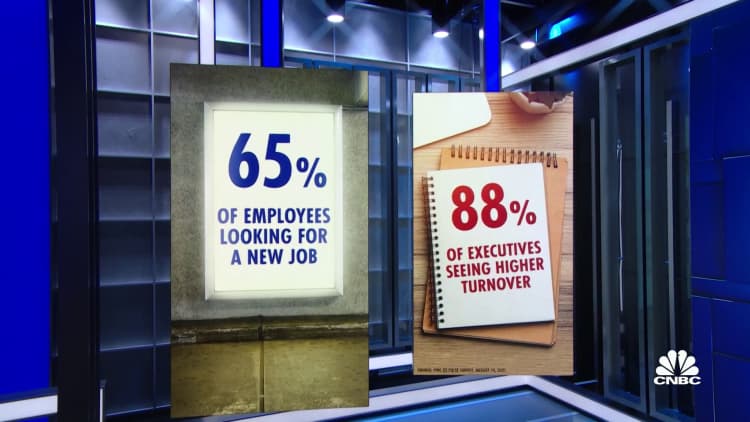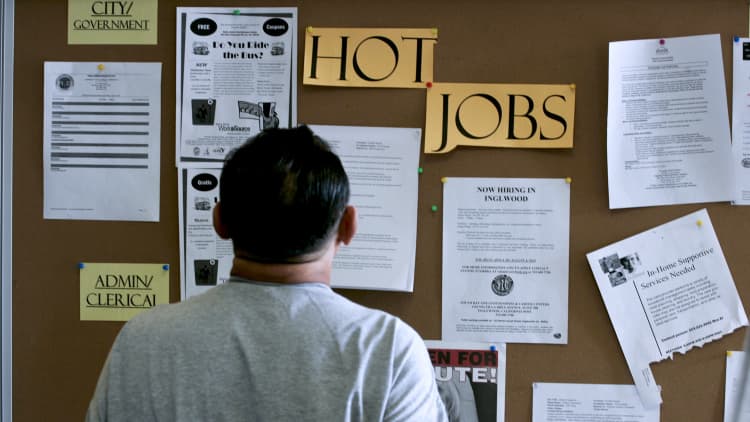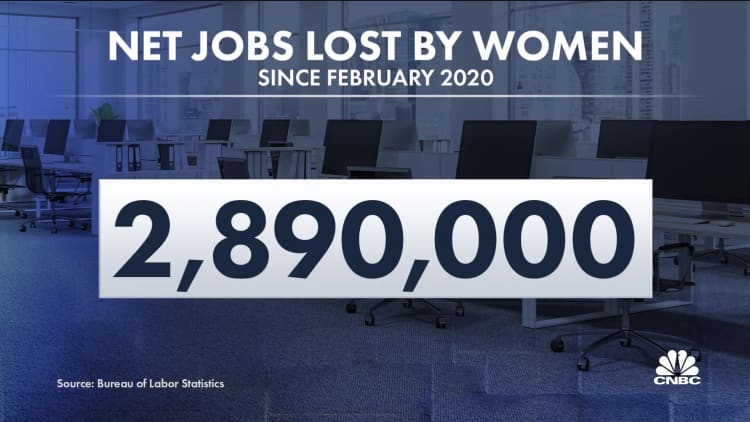Got a gap in your resume? Own it, say workplace experts
"Employers have been more amenable due to the pandemic ... gaps aren't glaring red flags as they've been in the past," says one career expert.

Believe it or not, career breaks are now more common than ever.
In a survey of 6,000 workers in Southeast Asia, only 29% indicated they never experienced a career break.
The top life experiences that required a career break — defined as taking more than a month off work — were health or wellness issues and job transitions, according to the research by market research firm Milieu Insight.
People also took career breaks to travel (13%), to raise children, (12%) and care for others (10%), the data showed.

Workplace experts CNBC Make It spoke to said the Covid-19 pandemic upended the traditional workplace: Many were forced to leave their jobs, while others chose to take a break to better manage life outside of work.
"During the pandemic when many industries were upended such as hospitality overnight, many people had career breaks that were out of their control," said Monster career expert Vicki Salemi.
"And many people became resourceful in identifying their valuable transferable skills like customer service and pivoting into other areas that were hiring."
But job candidates may still be worried about a resume gap despite changing norms. Here are four ways to address it in interviews.
1. Be prepared
If you're hoping to return to work after a career break, take some time to reflect on how you'd like to address the employment gap, said Nicole Price, a leadership coach and workplace expert.
"Write down your response and practice it, so you feel more comfortable when the question arises," she added.
Salemi agreed, saying that you may want to succinctly address it on your resume to get ahead of it.
"That's because if I'm perusing the resume as an employer, my initial question would be, 'I wonder what this gap represents.'"
Providing hiring managers a reason for the break and what was learned can quell their curiosity and fears about your abilities and commitment.
Vicki Salemi
Monster career expert
But that doesn't mean that companies see the gap as a red flag, Salemi said.
"Providing hiring managers a reason for the break and what was learned can quell their curiosity and fears about your abilities and commitment," she added.
"Employers have been more amenable due to the pandemic, Great Resignation, as well as job hopping — gaps aren't glaring red flags as they've been in the past."
According to a 2022 LinkedIn survey of more than 7,000 hiring managers globally, more than half of them are more likely to call a candidate back if they knew the context of their career break.
2. Be honest and succinct
Experts CNBC Make It spoke to said the temptation to conceal employment breaks exists because they're often viewed negatively.
"The assumption is you were fired, struggled to get hired, or are a poor performer," said Jenn Lim, CEO of organizational consultancy Delivering Happiness.
"Job seekers try to avoid the level of inquisition when it's already hard enough to find a job they actually want."
Even so, Lim said, it's never a good idea to hide or be deceitful in an interview — you can be honest without "going into intimate details."

"Less is more," Salemi added. "If you need a break to focus on your mental health, there's no shame in that game."
"You may want to say something like, 'I needed to focus on getting my health back on track.' You don't need to dive into details."
If you're not comfortable with revealing the exact reason for your employment gap, keeping your answer general works too, Price added.
"You can say, 'I took a career break for personal reasons that required my attention. Now, I'm ready to return to work and bring my full dedication to a new role.'"
3. Assert boundaries
However, employers may press for more information — beyond what you're comfortable talking about.
Don't be afraid to stand your ground and assert your boundaries, said the experts CNBC Make It spoke to.
You can be direct and indicate it's a personal reason even if they keep pushing. Remember, you're interviewing them as much as they're interviewing you.
Vicki Salemi
Monster career expert
"You can be direct and indicate it's a personal reason even if they keep pushing. Remember, you're interviewing them as much as they're interviewing you," Salemi said.
"If they continue to push, that's a sign of lacking empathy."
Price added that one way of asserting boundaries is saying "'I appreciate your understanding, but I'd prefer to keep the details private. However, I can assure you that the break has given me renewed energy and focus for my career.'"
The possibility of pushback is also why candidates should be prepared for a conversation about the time they were away, Salemi said.
"Hopefully, they will respect and accept that response and not continue to ask questions, but it's good to be prepared for it so you can stick to boundaries and your original statement."

4. Highlight the positives
The most important thing candidates should do is shift the focus from the reason for a break to what they've learned or achieved during the hiatus. Lim puts it this way: "This is your time to flip the script."
Take it from Nick Gausling, who took a six-month "health and well-being" break — which he noted on his LinkedIn profile — after serious mold exposure in his home.
"I think it really just comes down to how you position yourself ... smart employers these days are already understanding that this sort of thing is just kind of part of the talent pool," he told CNBC Make It.
"Literally everybody probably either has has had to do [a career break] at some point or know someone who has."
Instead, focus on what's in your control: the skills or experiences you've gained during this time.
Vicki Salemi
Monster career expert
Salemi added that ultimately, you cannot control how you are perceived.
"Instead, focus on what's in your control: the skills or experiences you've gained during this time."
For example, if you took a break to raise children, make it a point to highlight the skills you sharpened that make you a better employee, Price said. That includes:
Empathy and compassion: Understanding and addressing the needs and feelings of others is a key part of parenting.Time management: Managing the needs and schedules of multiple people — especially children — requires careful planning and organization.Multi-tasking: Managing multiple tasks simultaneously is a common part of caring for children.Problem-solving: Children often encounter problems that they need help resolving.Communication: Effective communication is key to managing the needs and expectations of multiple people."Don't discount the experiences gained during a career break, and give credit to the life skills we experience that can't be found in a training & development course … soft skills are in great demand," Lim added.
If you didn't pick up additional skills or experience during your break, try taking an online class or two, or set up job alerts and review the top skills required, the workplace experts advised.


 Tekef
Tekef 
































